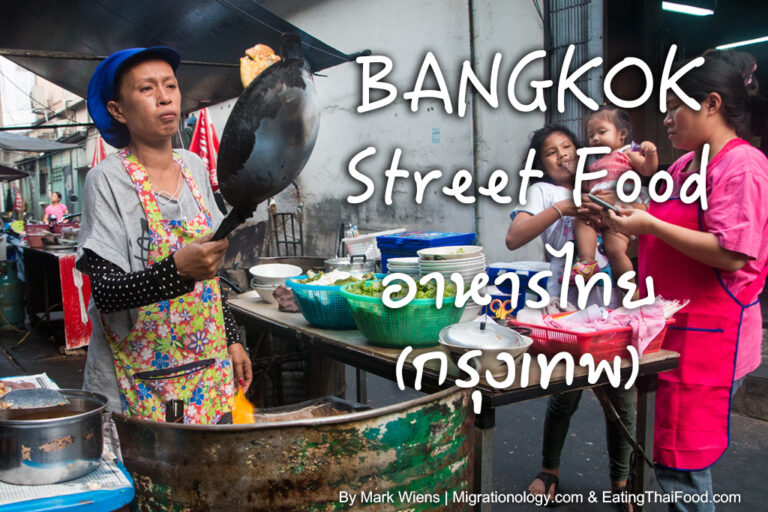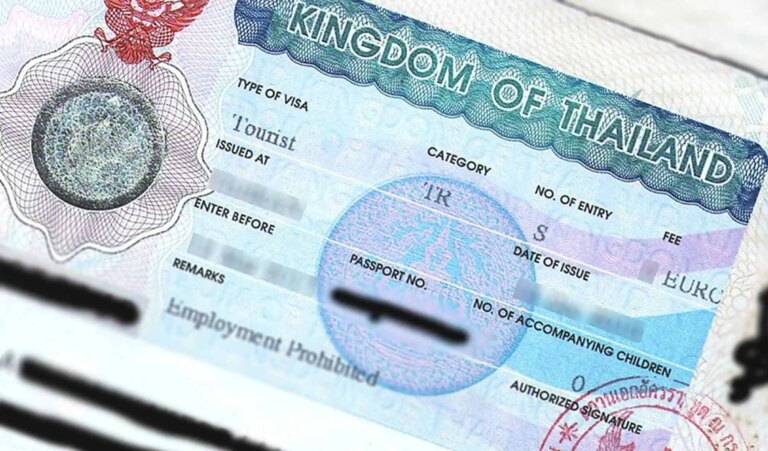Unlock the Road: Your Guide to Driving in Thailand
Unlock the Road: Your Guide to Driving in Thailand is a comprehensive resource designed to equip both locals and expatriates with the knowledge and resources needed to confidently navigate the roads of this vibrant Southeast Asian country.
This guide explores the different types of licenses available, eligibility criteria, necessary documents, and provides a step-by-step process to obtain a drivers license.
With a focus on traffic rules, regulations, and road safety, this guide aims to ensure a safe and enjoyable driving experience in Thailand.
Key Takeaways
- There are two types of drivers licenses available in Thailand: Non-Commercial (Category F) for private vehicle use and Commercial (Category T) for commercial vehicle use.
- To obtain a drivers license in Thailand, applicants must meet eligibility criteria such as being at least 18 years old, having a valid non-immigrant visa, and being physically and mentally fit to drive.
- The process of obtaining a drivers license in Thailand includes attending a driving school, passing written and practical driving tests, and providing specific documents such as a passport with a valid non-immigrant visa, work permit or certificate of residence, and a medical certificate from a licensed Thai physician.
- Expats seeking to obtain a drivers license in Thailand should learn the Thai language, understand traffic rules and regulations, familiarize themselves with the application process and requirements, and seek assistance or guidance from local authorities or expat communities.
Types of Drivers Licenses Available in Thailand
There are two categories of drivers licenses available in Thailand, namely the Non-Commercial Drivers License (Category F) and the Commercial Drivers License (Category T).
The Non-Commercial Drivers License (Category F) is for individuals who wish to drive private vehicles for personal use. This license allows them to drive cars, motorcycles, and other non-commercial vehicles.
On the other hand, the Commercial Drivers License (Category T) is for individuals who want to drive commercial vehicles for business purposes. This license is required for driving taxis, buses, trucks, and other vehicles used for transportation of goods or passengers.
It is important to note that the requirements and procedures for obtaining each type of license may vary. Therefore, it is advisable to check with the local Department of Land Transport for specific information regarding the licensing process.
Eligibility Criteria for Obtaining a Drivers License in Thailand
To be eligible for obtaining a drivers license in Thailand, individuals must meet certain criteria and fulfill specific requirements. These include:
- Being at least 18 years old.
- Having a valid non-immigrant visa.
- Being physically and mentally fit to drive.
- Attending a driving school to pass the written and practical driving tests.
In order to obtain a drivers license in Thailand, the following documents are required:
- A passport with a valid non-immigrant visa.
- A work permit or certificate of residence.
- A medical certificate from a licensed Thai physician.
- A certificate of completion from a driving school.
- A valid drivers license from your home country (if applicable).
- Two passport-sized photos.
It is important for expats seeking to obtain a drivers license in Thailand to:
- Learn the Thai language.
- Understand the traffic rules and regulations.
- Maintain patience and calmness while driving.
Documents Required for Obtaining a Drivers License in Thailand
The submission of the necessary documentation is a crucial step in the process of obtaining a driver's license in Thailand.
To obtain a driver's license, you will need to provide several documents. These include your passport with a valid non-immigrant visa, a work permit or certificate of residence, a medical certificate from a licensed Thai physician, and a certificate of completion from a driving school. It is also advisable to have a valid driver's license from your home country, if applicable.
Additionally, you will need to provide two passport-sized photos. These documents will be required during the application process and will play a vital role in determining your eligibility for a driver's license in Thailand. Therefore, it is important to ensure that you have all the necessary documents ready before applying.
Steps to Obtain a Drivers License in Thailand
To obtain a driver's license in Thailand, you need to follow several steps in the application process. These steps are designed to ensure that you meet all the necessary requirements and are capable of driving safely on Thai roads.
Here are the steps to obtain a driver's license in Thailand:
- Step 1: Obtain a valid non-immigrant visa.
- Step 2: Get a medical certificate from a licensed Thai physician to prove that you are physically and mentally fit to drive.
- Step 3: Attend a driving school and complete the required training.
- Step 4: Take the written and practical driving tests to demonstrate your knowledge of traffic rules and your ability to operate a vehicle.
- Step 5: Once you have passed the tests, you can obtain your driver's license.
Following these steps will ensure that you are legally qualified to drive in Thailand and have the necessary skills to navigate the country's roads safely.
Tips for Expats Seeking to Obtain a Drivers License in Thailand
While navigating the process of obtaining a driver's license in Thailand, expats can benefit from the following tips to ensure a smoother and more successful application.
Firstly, it is essential to learn the Thai language, as most of the application process and tests are conducted in Thai. This will not only help in understanding the instructions but also in communicating effectively with the authorities.
Secondly, expats should take the time to understand the traffic rules and regulations in Thailand, as they may differ from their home country. This will help them to be prepared and avoid any mistakes during the tests.
Lastly, it is crucial to remain patient and calm while driving, as the roads in Thailand can be chaotic at times. Keeping a cool head and following the rules will contribute to a safer and more enjoyable driving experience in Thailand.
Traffic Rules and Regulations in Thailand
Navigating the roads in Thailand requires a thorough understanding of the intricate traffic rules and regulations in place. To ensure a safe and smooth driving experience, it is important to familiarize yourself with the following:
- Keep to the left: Like in many other countries, driving in Thailand is on the left-hand side of the road.
- Speed limits: The speed limit on Thai roads typically ranges from 60 to 90 km/h, depending on the type of road.
- Seat belts: Both the driver and passengers are required to wear seat belts at all times.
- Traffic signals: It is crucial to obey traffic signals and signs, including red lights, stop signs, and yield signs.
- Motorbike regulations: If you plan on riding a motorbike, remember that wearing a helmet is mandatory for both the driver and passenger.
Importance of Learning Thai Language for Driving in Thailand
Learning the Thai language is important for driving in Thailand because it helps to navigate the roads more effectively and communicate with locals. Many road signs and traffic signals are in both Thai and English, but there are instances where knowledge of the local language is essential. For example, in rural areas or smaller towns, road signs and directions may only be written in Thai. Being able to converse with local drivers and pedestrians can be extremely helpful in understanding their intentions or asking for assistance if needed. Understanding basic Thai phrases related to driving, such as asking for directions or ordering food at roadside stalls, can enhance the overall driving experience and make it more enjoyable. Therefore, investing time in learning the Thai language can greatly improve a driver's confidence and safety on the roads of Thailand.
Common Challenges Faced by Drivers in Thailand
Managing traffic congestion is one of the common challenges faced by drivers in Thailand. The bustling streets of cities like Bangkok can often be overwhelmed with vehicles, resulting in long delays and frustration for drivers. However, traffic congestion is not the only challenge drivers face in Thailand. Here are some other common challenges:
- Reckless driving: Some drivers in Thailand have a tendency to drive aggressively, disobey traffic rules, and make dangerous maneuvers on the road.
- Lack of parking spaces: Finding a parking spot can be a challenge, especially in crowded areas. Drivers may need to spend a significant amount of time searching for parking.
- Motorcycles: Motorcycles are a popular mode of transportation in Thailand, and drivers need to be cautious of their presence on the roads.
- Language barrier: Understanding and communicating with local authorities or other drivers can be difficult for expats who do not speak Thai.
- Road conditions: Some roads in Thailand may be poorly maintained, with potholes and uneven surfaces, making driving challenging.
Navigating these challenges requires patience, alertness, and an understanding of the local driving culture.
Road Safety Tips for Driving in Thailand
Significantly, observing road safety tips is crucial for driving in Thailand. With its busy streets and unpredictable traffic, it is important for drivers to prioritize safety at all times.
Firstly, it is essential to always wear a seatbelt while driving or riding in a vehicle.
Additionally, it is important to follow the speed limits and be aware of the traffic signals and signs. Keep a safe distance from other vehicles and avoid aggressive driving behaviors.
Be cautious of motorcycles and pedestrians, as they are common on Thai roads.
Lastly, avoid driving under the influence of alcohol or drugs, as this is not only dangerous but also illegal in Thailand.
Frequently Asked Questions
Can I Use My International Drivers License in Thailand?
Yes, you can use your international driver's license in Thailand. However, it is recommended to obtain a Thai driver's license if you plan on driving for an extended period.
What Are the Consequences of Driving Without a Valid Drivers License in Thailand?
Driving without a valid driver's license in Thailand can result in severe consequences. These may include fines, vehicle impoundment, and even imprisonment. It is crucial to comply with the country's driving regulations to avoid such penalties.
Are There Any Age Restrictions for Obtaining a Drivers License in Thailand?
Yes, there are age restrictions for obtaining a driver's license in Thailand. Applicants must be at least 18 years old. Other eligibility criteria include having a valid non-immigrant visa and being physically and mentally fit to drive.
Is It Possible to Obtain a Drivers License in Thailand if I Don't Have a Work Permit or Certificate of Residence?
Yes, it is possible to obtain a driver's license in Thailand without a work permit or certificate of residence. However, you will still need a valid non-immigrant visa and meet other eligibility criteria, such as attending a driving school and passing the required tests.
Can I Apply for a Drivers License in Thailand if I Have a Tourist Visa?
Yes, it is possible to apply for a driver's license in Thailand with a tourist visa. However, you will still need to meet the other eligibility criteria and provide the required documents to obtain the license.
Conclusion
In conclusion, obtaining a drivers license in Thailand can be a complex process, but with the right knowledge and preparation, it can be navigated smoothly. By understanding the types of licenses available, the eligibility criteria, and the necessary documents, expatriates can confidently obtain a license.
It is important to familiarize oneself with the local traffic rules and regulations, and to be patient and calm while driving. With these considerations in mind, expatriates can enjoy a safe and enjoyable driving experience in Thailand.






